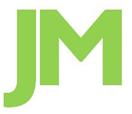From a Painting By Numbers perspective, the article below is probably one of the most important you’ll read this month, maybe the next few months.
It does a great job expanding on my Commandment No. 10, “Respect the Human Condition,” probably the most sweeping of the twelve commandments in my book. It means […]
From a Painting By Numbers perspective, the article below is probably one of the most important you’ll read this month, maybe the next few months.
It does a great job expanding on my Commandment No. 10, “Respect the Human Condition,” probably the most sweeping of the twelve commandments in my book. It means that the foibles of us mere mortals – such as accentuating the positive, stretching for success, seeking reward and avoiding punishment – are almost always baked into every numerical result we see in the public sphere. And when they aren’t, you can bet it took lots of experts with plenty of patience for the foibles, or biases, to be extracted out.
Unless you are looking at primary research documents, every numerical result you see has two major components: the work of the analysts or researchers themselves and the work of those (journalists, communications professionals, policy aids, etc) who report them. The headline of the article below focuses on making the scientific method better account for less than positive results. But the authors also take reporters to task, who generally ignore critical research which doesn’t lead to a positive result.
The headline, “Dope a Trope shows modest cancer fighting ability in latest research,” is going to have higher readability than “Scientists find Dope a Trope has no effect on cancer patients.” The problem with this is, in the realm of research, there could be half a dozen experiments of the latter variety and only one of the former. And the half dozen who found no effect probably aren’t going to impress those who fund research.
The author, Aaron E. Carroll of the Indiana University School of Medicine, notes, rightly I believe, that the whole culture of professional scientific research has to change to address this endemic challenge. Thankfully, the author has a great blog site, The Incidental Economist, where he regularly expands on this broad but critical subject. For those interested in diving in even deeper, The Center for Open Science has tools and info for making research methods more transparent and results more reproducible. Only after many experts arrive at the same results should the rest of us even begin to take them seriously.
https://www.nytimes.com/…/science-needs-a-solution-for-the-…

Recent Posts
- What Debussy, data mining and modeling have in common…
- Turning Traditional Economics Inside Out
- C-IRA Poster for the International Conference on Complex Systems
- The lack of error and uncertainty analysis in our science and technical communications is as pernicious as the ‘partisan divide’
- It’s just not that hard: Earth Day at 50
Recent Comments
- jmakansi on When a Favorite Short Story Expands to a Novel…
- Ronald Gombach on When a Favorite Short Story Expands to a Novel…
- Kathy Schwadel on When a Favorite Short Story Expands to a Novel…
- jmakansi on So Vast the Prison: Takes No Prisoners Regarding the Universal Plight of Women
- Elena on So Vast the Prison: Takes No Prisoners Regarding the Universal Plight of Women
Archives
- September 2020
- August 2020
- July 2020
- April 2020
- March 2020
- July 2017
- June 2017
- April 2017
- March 2017
- January 2017
- July 2016
- May 2016
- November 2015
- October 2015
- August 2015
- May 2015
- March 2015
- January 2015
- November 2014
- September 2014
- August 2014
- July 2014
- June 2014
- May 2014
- April 2014
- March 2014
- February 2014
- January 2014
- December 2013
- November 2013
- August 2013
- July 2013
- June 2013
- April 2013
- February 2013
- January 2013
- November 2012
- October 2012
- September 2012
- August 2012
- March 2012
- November 2011
- October 2011
- July 2011
- June 2011
- December 2010
- November 2010
- March 2010
- January 2010
- December 2009
- November 2009
- October 2009
- September 2009
- August 2009
- Error gathering analytics data from Google: Error 404 (Not Found)!!1 *{margin:0;padding:0}html,code{font:15px/22px arial,sans-serif}html{background:#fff;color:#222;padding:15px}body{margin:7% auto 0;max-width:390px;min-height:180px;padding:30px 0 15px}* > body{background:url(//www.google.com/images/errors/robot.png) 100% 5px no-repeat;padding-right:205px}p{margin:11px 0 22px;overflow:hidden}ins{color:#777;text-decoration:none}a img{border:0}@media screen and (max-width:772px){body{background:none;margin-top:0;max-width:none;padding-right:0}}#logo{background:url(//www.google.com/images/branding/googlelogo/1x/googlelogo_color_150x54dp.png) no-repeat;margin-left:-5px}@media only screen and (min-resolution:192dpi){#logo{background:url(//www.google.com/images/branding/googlelogo/2x/googlelogo_color_150x54dp.png) no-repeat 0% 0%/100% 100%;-moz-border-image:url(//www.google.com/images/branding/googlelogo/2x/googlelogo_color_150x54dp.png) 0}}@media only screen and (-webkit-min-device-pixel-ratio:2){#logo{background:url(//www.google.com/images/branding/googlelogo/2x/googlelogo_color_150x54dp.png) no-repeat;-webkit-background-size:100% 100%}}#logo{display:inline-block;height:54px;width:150px} 404. That’s an error. The requested URL /analytics/v2.4/data?ids=ga:66373148&metrics=ga:pageviews&filters=ga%3ApagePath%3D%7Encidental-economist%2F.%2A&start-date=2025-05-08&end-date=2025-06-07 was not found on this server. That’s all we know.
- Error gathering analytics data from Google: Error 404 (Not Found)!!1 *{margin:0;padding:0}html,code{font:15px/22px arial,sans-serif}html{background:#fff;color:#222;padding:15px}body{margin:7% auto 0;max-width:390px;min-height:180px;padding:30px 0 15px}* > body{background:url(//www.google.com/images/errors/robot.png) 100% 5px no-repeat;padding-right:205px}p{margin:11px 0 22px;overflow:hidden}ins{color:#777;text-decoration:none}a img{border:0}@media screen and (max-width:772px){body{background:none;margin-top:0;max-width:none;padding-right:0}}#logo{background:url(//www.google.com/images/branding/googlelogo/1x/googlelogo_color_150x54dp.png) no-repeat;margin-left:-5px}@media only screen and (min-resolution:192dpi){#logo{background:url(//www.google.com/images/branding/googlelogo/2x/googlelogo_color_150x54dp.png) no-repeat 0% 0%/100% 100%;-moz-border-image:url(//www.google.com/images/branding/googlelogo/2x/googlelogo_color_150x54dp.png) 0}}@media only screen and (-webkit-min-device-pixel-ratio:2){#logo{background:url(//www.google.com/images/branding/googlelogo/2x/googlelogo_color_150x54dp.png) no-repeat;-webkit-background-size:100% 100%}}#logo{display:inline-block;height:54px;width:150px} 404. That’s an error. The requested URL /analytics/v2.4/data?ids=ga:66373148&dimensions=ga:date&metrics=ga:pageviews&filters=ga%3ApagePath%3D%7Encidental-economist%2F.%2A&start-date=2025-05-08&end-date=2025-06-07 was not found on this server. That’s all we know.


